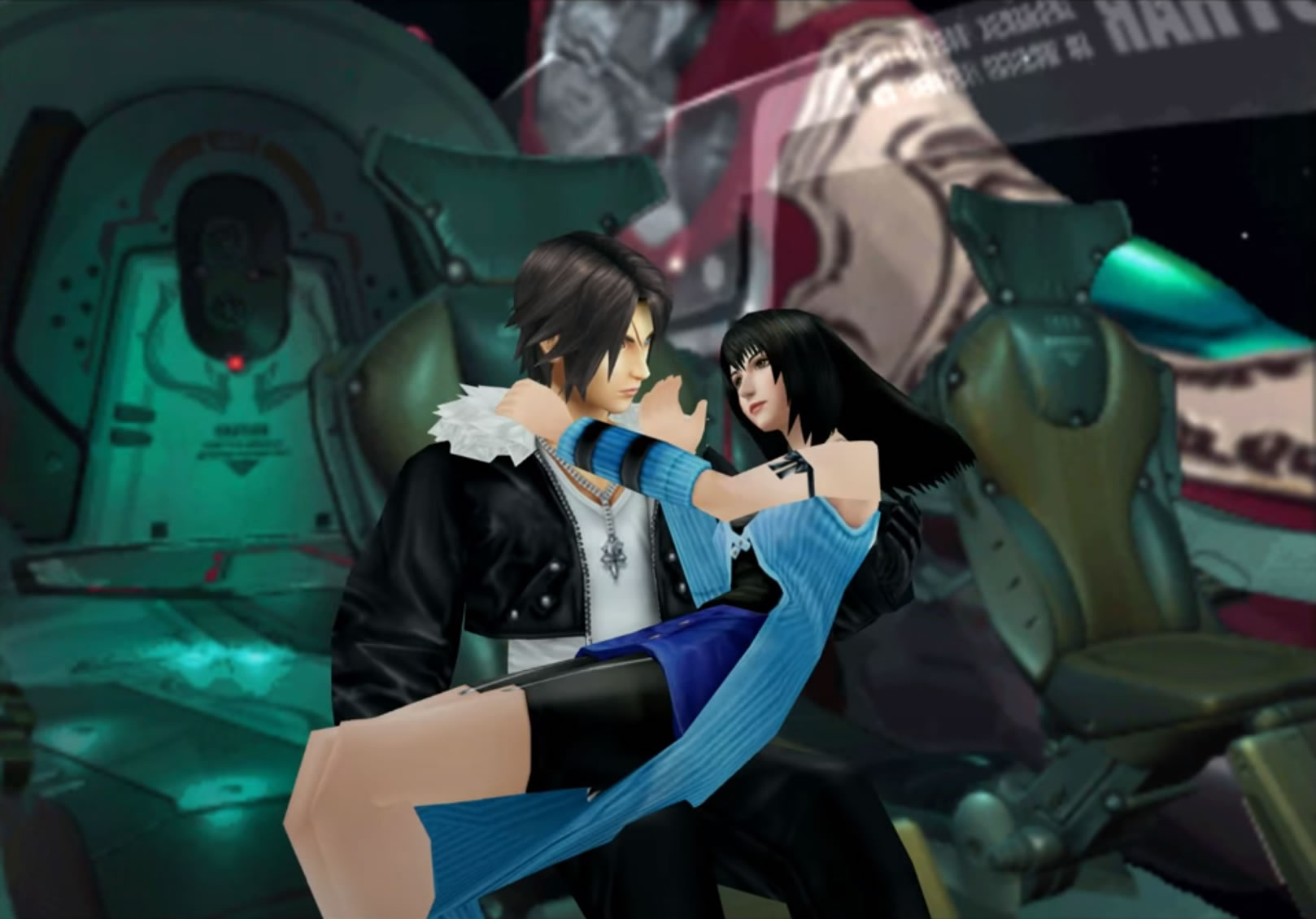As a weird 10-year-old, “Eyes on Me” was the epitome of romance to me. I was not a kid who thought much about romance apart from reading 30 percent of a chaste PG fanfic before getting distracted. I didn’t listen to much current music; apart from what was played on the school bus radio and the few top 40 hits I would catch on my clock radio, the only adult contemporary music I ever heard was what my parents played at parties. So when it came to the emotion of love, it was either “Fields of Gold” by Sting, or “Eyes on Me” performed by Faye Wong in the hit video game Final Fantasy VIII.
“Eyes on Me” is many things. It is a song about distant longing, about projecting your fantasies onto someone you don’t really know, about dreaming, about imagining the comfort of emotional intimacy, about missed opportunities and last chances. It’s a diegetic pop hit within the world of Final Fantasy VIII that binds together two time periods, bridging together two romances, two decades apart, that drive the events of the game.
It is also, at times, kind of incoherent.
The song was written in English by a Japanese lyricist, performed by a Chinese singer. Uematsu says he liked having Faye Wong as the singer because “[t]he fact that she was Chinese fits the international image of Final Fantasy.” Somehow, the fusion of those language barriers produced a song that is sometimes beautifully hard to understand.
There were a few years after college when I would sing “Eyes on Me” to myself whenever I would go on a long walk. And it wasn’t until I was singing it every couple days that I realized how awkward the opening lines of the song are:
Whenever sang my songs On the stage, on my own Whenever said my words Wishing they would be heard
I thought for sure there was a transcription errors in the lyrics when I looked them up. For a while, I thought she was singing, “We never sang my songs.” Then I realized that didn’t make sense, and I assumed there was an elided “I” after “Whenever,” with a brief extra note leading into “sang.” But no, it’s just “Whenever sang”!
In this case, it doesn’t matter, because it flows so well. The melody is heavenly! It sounds like a shy singer stepping onto the stage and working up the courage to sing.
One of the things that will probably come up a lot on this blog is that we’re too concerned with literal truth and canon, not allowing ourselves to surrender to the emotion. The opening lines of “Eyes on Me” are a perfect litmus test for that. Do you feel it in your heart or your brain first?
The song quickly finds its groove, leading into the chorus:
Darling, so there you are With that look on your face As if you're never hurt As if you're never down
Beautiful! Looking into someone’s eyes and seeing the image they are projecting, compared to what they must be holding inside, what they may be holding back and willing to give you if there was only an opportunity. Let’s see what’s next…
Shall I be the one for you Who pinches you softly but sure? If frown is shown then I will know that you are no dreamer
What??
These are such bad lyrics. The message is fine (“Am I dreaming? Pinch me darling”). But the flow is horrible. The heavy constants are like falling hammers. Faye Wong pronounces “softly” with a guttural L that does the line no favors and acts like a speed bump in the middle of the word. There’s no rhyme or assonance to pick up the slack. It’s 20 seconds of cold water in the middle of an otherwise beautiful song.
I can’t defend those four lines the same way I could defend the opening. But I love “Eyes on Me” not in spite of them, but because of them.
Broken language can be compelling and musical in its own way. One of my favorite butchered localizations is in the 1994 Super Nintendo game Illusion of Gaia; in one scene late in the game, you meet an intellectual, Rofsky, spending time with a violinist. In the original script, Rofksy complains about how the violin sounds like a disaster. In the English version, he says:
True genius is a violent thing! It sounds like a tempest!
That is not even remotely what the original dialogue was. “Violin” somehow became “violent,” and the rest of the line seems to have been reverse-engineered from that. Within this bizarre mistranslation, there is an attempt to meet the energy of the scene, with Rofsky speaking arrogantly to his musical companion. It is weirdly profound in the way that only a total fumbling of language can produce.
And so it is with “Eyes on Me.” It quickly dismounts from its awkward chorus into a piccolo solo, mimicking the flute solo in “My Heart Will Go On,” the emotional ballad from Titanic that certainly influenced Nobuo Uematsu’s song. It says with the energy of the scene, Squall and Rinoa embracing each other, softly but sure.

